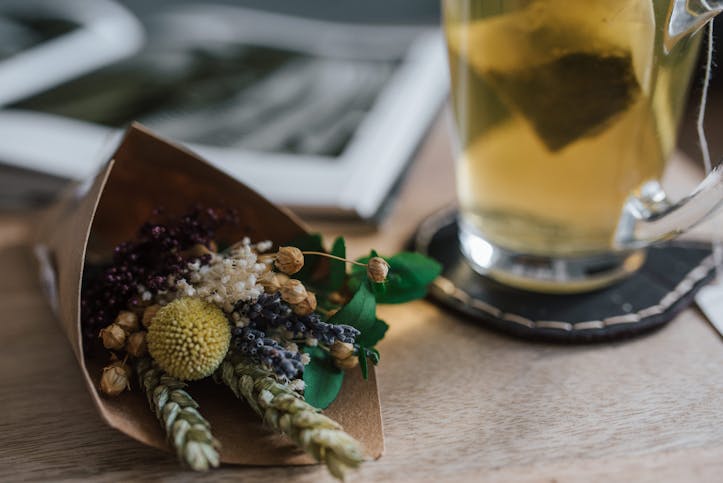Fasting Tea Benefits: Is Herbal Tea Acceptable?

When considering fasting, many people question what beverages are permissible without breaking their fast. A common query is whether herbal tea is ok when fasting. This article aims to educate on the compatibility of herbal tea with fasting regimens.
Understanding Fasting and Herbal Tea
Fasting, the voluntary abstention from food and drinks for a specific period, can take various forms, from intermittent fasting to prolonged fasts. The primary goal often revolves around health improvement, weight loss, or spiritual reasons. During fasting, the body undergoes several metabolic changes, shifting from using glucose as the primary energy source to utilizing fat.
Herbal teas, made from a concoction of herbs, spices, and plants steeped in hot water, are naturally low in calories and free from sugars and artificial additives, making them an excellent candidate for fasting.
Health Benefits of Herbal Tea During Fasting
Drinking herbal tea when fasting can contribute to hydration and provide a sense of fullness, which can help manage hunger pangs. Additionally, certain herbs are known for their health-promoting properties, such as anti-inflammatory effects, improved digestion, and detoxification support. Teas such as peppermint, ginger, and chamomile are popular choices that can soothe the stomach and aid in digestion during fasting periods.
Does Herbal Tea Break a Fast?
The consensus among health experts is that herbal tea does not break a fast as long as it is consumed without the addition of sweeteners, milk, or cream. Pure herbal tea is virtually calorie-free, and as such, it does not significantly impact blood sugar levels or interrupt the metabolic state of fasting.
Choosing the Right Herbal Tea for Fasting
When selecting an herbal tea to enjoy during fasting, it’s essential to opt for unsweetened and natural varieties. Some commercially available herbal teas may contain added flavors or sweeteners that could potentially interfere with the fasting process. Therefore, always read labels carefully or consider using loose-leaf herbs to brew your own tea.
Timing and Quantity: How Much Herbal Tea Is Too Much?
Although herbal tea is a fasting-friendly option, moderation is key. Drinking excessive amounts may lead to an overconsumption of water, which can dilute electrolytes and potentially lead to an imbalance. A reasonable approach would be to consume herbal tea in moderation, listening to your body’s signals and ensuring you’re also getting plain water.
Integrating Herbal Tea into Your Fasting Routine
Introducing herbal tea into your fasting routine can be a comforting and beneficial practice. Start by trying a cup of herbal tea in the morning to kickstart your day or when you typically experience hunger cues. It can be a way to maintain a routine and provide a moment of tranquility in your day.
Precautions and Considerations
While herbal tea can be a great addition to your fasting routine, it’s vital to consider any potential interactions with medications or health conditions. Some herbs can have contraindications, so it’s recommended to consult with a healthcare provider, especially if you have underlying health issues or are pregnant or breastfeeding.
In conclusion, including herbal tea when fasting can be a delightful and healthful practice. It not only aids in maintaining hydration but also supports the body’s natural processes during fasting. By choosing the right type of herbal tea and consuming it in appropriate amounts, you can enjoy the benefits of fasting without forgoing the pleasure of a warm, soothing beverage.
Discover if herbal tea is ok when fasting, its health benefits during fasts, and how to integrate it into fasting routines responsibly.
Recent Posts
- Fasting Tea Essentials: What Teas Can You Drink While Intermittent Fasting?
- Fasting Tea: Enhancing Your Intermittent Fasting Experience
- Fasting Tea Benefits: Can You Drink Herbal Tea During Intermittent Fasting?
- Unlocking the Secrets of Matcha Tea for Rapid Weight Loss
- Fasting Tea Essentials: Choosing the Right Blend for Intermittent Fasting
- Fasting Tea Benefits: Intermittent Fasting Rooibos Tea
- Fasting Tea: Unlocking Health Benefits with Green Fit Tea
- Fasting Tea: Exploring Herbal Options for Your Regimen
- Can I Drink Barley Bergamot Green Tea for Fast Weight Loss?
- Herbal Fasting Tea Amazon: A Guide to Choosing Your Blend